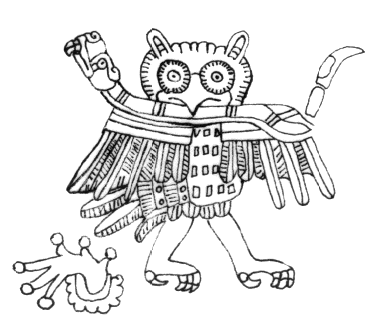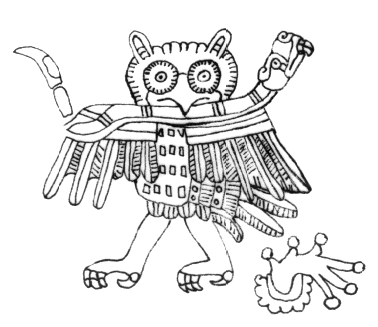テキスト(大熊康彦訳)
6
真理関数の一般的形式はこうだ: 。 。これが文の一般的形式だ。- 〔6.00 という番号をもつ文は存在しない。〕 6.001 これは、どんな文もそれぞれに特定の諸基本的文へのオペレーション  のサクセッシヴな
〔succesiven〕適用の結果であることを述べているに過ぎない。 のサクセッシヴな
〔succesiven〕適用の結果であることを述べているに過ぎない。6.002 文の組み立てられ方の一般的形式が齎されているならば、それとともに、或る文から或るオペレーションによって別の或る文が如何に生み出され得るかについて の一般的形式も、もう齎されている。 |
source: http://writing.upenn.edu/library/Wittgenstein-Tractatus.pdf |
source: http://writing.upenn.edu/library/Wittgenstein-Tractatus.pdf |
| 6.1
論理の文全般はトートロジーだ。 〔6.11-6.13〕 |
||
| 6.2
数学はひとつの論理的方法だ。 数学の文一般は等式であり、したがって、見かけの文だ。 〔6.21-6.24〕 |
||
| 6.3
論理の探求とは総ての法則性の探求のことだ。そして、論理の外では総てが偶然だ。 〔6.31-6.37〕 6.31 いわゆる帰納法則は、とにかく論理法則ではあり得ない。それは明らかに有意味な文なのだから。――したがって、それはアプリオリな法則でもあり得ない。 6.32 因果法則は法則ではなく、何らかの法則の形式だ。 6.321 「因果法則」、これは種名だ。そして、例えば力学に諸最小法則――最小作用の法則のような――が存在するように、物理学には諸因果法則、因果形式の諸法則 が存在する。 6.3211 実際、ひとは、何らかの「最小作用の法則」が在るに違いないと、それがどういう内容なのかを正確に把握する前から、予感してきたのだ。(ここでも、例のご とく、アプリオリに確実なのは純粋に論理的な何かであることが判明する。) 6.33 我々は保存法則なるものをアプリオリに信じているのではなくて、或る論理的形式の可能性をアプリオリに把握している。 6.34 根拠律、自然における連続性の原理、自然における最小消費の原理等々のような命題の総ては、科学の文の可能な造形についてのアプリオリな洞察だ。 6.341 例えば、ニュートン力学は世界記述にひとつの統一的形式を提供する。不規則な黒い斑点のある白い平面を考えよう。そこで、我々はこう言う: どんな図柄がそれによって生じようと、当の平面を適当に細かい正方形の網で覆い、そして、それぞれの正方形について、それが白いのか黒いのかを述べること によって、私はその図柄の記述に望むだけ近づくことができる。私はこの方法によって件の平面の記述にひとつの統一的形式を与えおおすだろう。この形式は任 意だ。三角形や六角形の目から成る網を同様の成功裡に用いることもできただろうから。三角網による記述の方が簡単にいったということもあり得る。つまり、 我々は、件の平面を、細かい正方網よりも粗い三角網を使った方が正確に記述できた(あるいはその逆)等々ということも。別々の網には別々の世界記述のシス テムが対応する。力学は、世界記述の文の総ては幾つかの所定の文――力学の諸公理――から或る所定の方法で得られるのでなければならない、と述べることで 世界記述の一形式を規定する。それによって、力学は、科学的建築物の建設に資材を供給し、そしてこう言う: どんな建築物を建てるつもりにせよ、それをお前はもっぱらこれだけの資材でもってどうにかしなければならない。 (数のシステムによってあらゆる任意の数を書下すことができるように、ひとは力学のシステムによって物理学のあらゆる任意の文を書下すことができるはず だ。) 6.342 そして、いま、我々には論理と力学の相対的ポジションが見える。(ひとは件の網を例えば三角形と六角形からというように種々の図形から成るようにすること もできただろう。)先に述べられたような図柄が或る適当な形式の網によって記述され得ることは、当の図柄について何ごとも言明しはしない。(そのことはそ の種の図柄の何れについても当てはまるのだから。)だが、その図柄が特定の細かさをもつ特定の網によって完全に記述され得ること、これは当の図柄を特徴づ ける。 同様に、世界がニュートン力学によって記述され得ることは、世界について何ごとも言明しはしないが、しかし、世界がかの力学によってこのことがまさに成り 立つとおりに記述され得ることは、世界を特徴づける。また、一方の力学によっての方が他方によってよりも世界は簡潔に記述され得るということも、世界につ いてなにがしかを述べている。 6.343 力学は我々が世界記述に必要とする総ての真な文をひとつのプランに随って構成する企てだ。 6.3431 論理的機構全体を通じて、物理法則全般は世界の対象全般について語るのだ。 6.3432 我々は、力学による世界記述が恒に全く一般的であることを忘れてはならない。力学で話題にされるのは、例えば、特定の諸質点では決してなく、恒に不特定の 諸質点ばかりだ。 6.35 我々の図柄における斑点は何れも幾何学的図形ではあるが、もちろん、幾何学はそれらの実際の形や位置については全く何も述べ得ない。件の網は、だが、純粋 に幾何学的だ。その総ての属性はアプリオリに特定され得る。 根拠律等々のような法則は網を主題としている。網が記述するものをではない。 6.36 因果法則なるものが在ったならば、その内容はこうかも知れない: 「諸自然法則が存在する」。 だが、もちろん、ひとはそう言うことはできない。それは自ずと明らかになるのだ。 6.361 ヘルツの口吻でひとはこう言うかも知れない: ただ法則通りの聯関だけが思惟可能だ。 6.3611 我々はひとつのプロセスを「時の経過」と較べることなどできない――時の経過は存在しない。ただ何か別のプロセスと(例えばクロノメーターの動きと)較べ 得るだけだ。 だから、時間的推移の記述は、もっぱら我々が何か別のプロセスに拠る限りにおいて可能だ。 全く同様のことが空間にも当てはまる。ひとが、例えば、ふたつの(両立しない)出来事について、他方でなく一方が起るべきどんな理由も存在しないのだから どちらも起り得ない、と言うとき、実際に問題になっているのは、どんな非対称性も存在しないならば、ひとはそれらふたつの出来事のうちのひとつを記述する ことなど全くできないということだ。そして、そのような非対称性が存在する場合、我々はそれを一方が現実のものとなり他方がならないことの理由と解し得 る。 6.36111 カント流の右手と左手の問題、それらをひとは重ね合わし得ないという問題は、平面でも、それどころか一次元空間でも存立する。そこでは、a と b のようなふたつの合同な図形でさえ、当の空間の外へ動かされること無く重ね合わされることはあり得ない。  右手と左手は実は全く合同だ。しかし、そのこととひとがそれらを重ね合わし得ないことは何の関わりもない。 右手袋を四次元空間で回転させることができたならば、ひとはそれを左手に着け得ることだろう。 6.362 記述され得ることがらは、また、生じ得る。そして、因果法則によって締め出されるものとされることがらは、記述されもし得ない。 6.363 帰納のプロセスは、我々が自らの経験と調和させ得る最も単純な法則を採用する点に在る。 6.3631 そのプロセスは、だが、どんな論理的根拠づけももたない。ただ何らかの心理的根拠づけをもつだけだ。 最も単純なケースがとにかくまた実際に生じるだろうと信じる根拠など存在しないことは明らかだ。 6.36311 太陽があした昇るだろうというのは仮説であり、それは、我々は太陽が昇ることになるのかどうか判らないということを意味する。 6.37 或ることが生じたということから別の或ることが生じざるを得なくさせるような、そんな強制は存在しない。ただ何らかの論理的必然性だけが存在する。 6.371 いわゆる自然法則全般は自然現象全般の説明だという錯覚が、近代的世界観全体の基礎を成している。 6.372 それで、ひとびとは自然法則全般のもとに、何やら不可侵のもののもとでの如く、立ち尽くしている。古人が神や運命のもとにそうしたように。 そして、どちらも正当性と不当性をともにもってはいる。しかし、新たなシステムのもとでは総てが説明されているかのように見えてしまうのに対して、はっき りとした断絶を認めている点で、古人の方が明晰だ。 6.373 世界は私の意志とは独立している。 6.374 たとえ我々が望むことの総てが生じたとしても、それはやはり謂わば運命の恩寵でしかないだろう。それを保証するような、意志と世界の間の論理的聯関など存 在しないのだし、それに、我々は仮定された物理的聯関そのものをまた欲することなどできないだろうから。 6.375 論理的必然性だけが存在するのと同様に、論理的不可能性だけがまた存在する。 6.3751 例えば、ふたつの色が視野の一箇所にともに在ることは不可能、しかも論理的に不可能だ。それは色の論理的構造によって排除されるのだから。 この矛盾が物理学においてどう表わされるか考えてみよう。それは、おおよそこうだ: ひとつの粒子が同時にふたつの速度をもつことはあり得ない、つまり、ひとつの粒子は同時にふたつの場処には在り得ない、つまり、同じ時、色々な場処におけ る諸粒子は同一ではあり得ない。 (ふたつの基本的文の論理積はトートロジーでもコントラディクションでもあり得ないことは明らかだ。視野の一点が同時にふたつの相異なる色をもつという言 明はコントラディクションだ。) |
||
| 6.4 総ての文は対等だ。 〔6.41-6.45〕 6.41 世界の意味は世界の外に在るはずだ。世界においては総ては在るがままに在り、生じるがままに生じる。世界の中には何の価値も存在しない――それに、存在し たとしても、それは何の価値ももたないことだろう。 価値をもつ価値なるものが存在するならば、それは総ての生起と相在〔So-Seins〕の外に在るはずだ。総ての生起と相在は偶然的なのだから。 それを非偶然的にするものは、世界の中には在り得ない。在り得たとすれば、そのことはまた偶然的だろうから。 それは世界の外に在るはずだ。 6.42 したがって、倫理の文なども存在し得ない。 文は高次のものを何も表現し得ない。 6.421 倫理は言い表わされ得ないことは明らかだ。 倫理は超越論的だ。 (倫理と美学はひとつのものだ。) 6.422 「お前は ・ ・ ・ すべきだ」という形式の倫理法則を立てる際の最初の考えはこれだ: だが私がそれをしない場合には? しかし、倫理が通常の意味での罰および賞とは何の関わりもないことは明らかだ。だから、或る行為の諸帰結についてのこの問いは重要ではないはずだ。――少 なくとも、そうした帰結は出来事であってはならない。件の問題設定にも何か正当なところはあるはずなのだから。たしかに、或る種の倫理的な罰や倫理的な賞 は存在するには違いないが、しかし、それらは当の行為そのもののうちに在るはずだ。 (また、賞が何か好ましいことがらで、罰が好ましくないことがらである必要があることも明らかだ。) 6.423 倫理的なものの担い手としての意志は語られ得ない。 そして、現象としての意志はただ心理学の興味を惹くだけだ。 6.43 善き志なり悪しき志なりが世界を変えるにしても、それは、ただ世界の限界を変え得るだけであり、事実全般を変えることはできない。言語によって表現され得 ることがらを変えることはできない。 要するに、世界は、そのときそれによって、そもそも別ものになるはずだ。世界は謂わば全体として減るか増えるかするはずだ。 幸福な者の世界は不幸な者の世界とは別ものだ(The world of the happy is quite another than that of the unhappy)。 6.431 死の際にさえ、世界は変わらない。終わるのだ。 6.4311 死は生〔des Lebens〕の出来事ではない。死をひとが体験することはない。 ひとが永遠ということを無限の期間ではなく、無時間性と解するならば、現在において生きている者は永遠に生きている。 我々の視野が限り無いのと同様、我々の生は果てし無い。 6.4312 人間の魂の時間的不死性、つまり、魂が死後にも永遠に生き続けることは、到底保証されない。そればかりか、この仮定は、とりわけ、ひとが恒にそれによって 叶えようとしていることがらを全く果たさない。そもそも私が永遠に行き続けることによって何か謎が解かれるのか? それに、そもそもその永遠の生は現在の生と同様に不可解ではないか? 空間と時間の中の生の謎の解決は、空間と時間の外に位置する。 (解かれるべきは自然科学の問題などではないのだ。) 6.432 世界がどのようであるかは、高次のものには全くどうでもいいことだ。神は自らを世界の中には啓示しない。 6.4321 事実の総てはもっぱら課題に必要とされる。解決にではない。 6.44 世界がどのようであるかではなくて、それが在ることが神秘だ。 6.45 永遠の相のもとの〔sub specie aeterni〕世界の観想は、全体――限定された――としての世界の観想だ。 限定された全体としての世界という感じが神秘だ。 |
6.4 All propositions are of equal value. 6.41 The sense of the world must lie outside theworld. In the world everything is as it is, andeverything happens as it does happen: in it novalue exists—and if it did exist, it would haveno value. If there is any value that does have value,it must lie outside the whole sphere of whathappens and is the case. For all that happensand is the case is accidental. What makes it non-accidental cannot liewithin the world, since if it did it would itself be accidental. It must lie outside the world. 6.421 It is clear that ethics cannot be expressed. Ethics is transcendental. (Ethics and æsthetics are one.) 6.422 The first thought in setting up an ethical law of the form “thou shalt . . . ” is: And what if I do not do it? But it is clear that ethics has nothing to do with punishment and reward in the ordinary sense. This question as to the consequences of an action must therefore be irrelevant. At least these consequences will not be events. For there must be something right in that formulation of the question. There must be some sort of ethical reward and ethical pun- ishment, but this must lie in the action itself. (And this is clear also that the reward must be something acceptable, and the punishment something unacceptable.) 6.423 Of the will as the subject of the ethical we cannot speak. And the will as a phenomenon is only of interest to psychology 6.43 If good or bad willing changes the world, it can only change the limits of the world, not the facts; not the things that can be expressed in language. In brief, the world must thereby become quite another, it must so to speak wax or wane as a whole. The world of the happy is quite another than that of the unhappy. 6.431 As in death, too, the world does not change, but ceases. 6.4311 Death is not an event of life. Death is not lived through. If by eternity is understood not endless temporal duration but timelessness, then he lives eternally who lives in the present. Our life is endless in the way that our visual field is without limit. 6.4312 The temporal immortality of the human soul, that is to say, its eternal survival also after death, is not only in no way guaranteed, but this assumption in the first place will not do for us what we always tried to make it do. Is a riddle solved by the fact that I survive for ever? Is this eternal life not as enigmatic as our present one? The solution of the riddle of life in space and time lies outside space and time. (It is not problems of natural science which have to be solved.) 6.432 How the world is, is completely indifferent for what is higher. God does not reveal himself in the world. 6.4321 The facts all belong only to the task and not to its performance. 6.44 Not how the world is, is the mystical, but that it is. 6.45 The contemplation of the world sub specie aeterni is its contemplation as a limited whole. The feeling that the world is a limited whole is the mystical feeling. |
6.4 GER [→OGD | →P/M]
Alle Sätze sind gleichwertig.
6.41 GER [→OGD | →P/M]
Der Sinn der Welt muss außerhalb ihrer
liegen. In der Welt ist alles, wie es ist, und geschieht alles, wie es geschieht; es gibt i n ihr
keinen Wert—und wenn es ihn gäbe, so hätte
er keinen Wert.
Wenn es einen Wert gibt, der Wert hat, so
muss er außerhalb alles Geschehens und SoSeins liegen. Denn alles Geschehen und So-Sein
ist zufällig.
Was es nichtzufällig macht, kann nicht i n
der Welt liegen, denn sonst wäre dies wieder
zufällig.
Es muss außerhalb der Welt liegen.
6.42 GER [→OGD | →P/M]
Darum kann es auch keine Sätze der Ethik
geben.
Sätze können nichts Höheres ausdrücken.
6.421 GER [→OGD | →P/M]
Es ist klar, dass sich die Ethik nicht aussprechen lässt.
Die Ethik ist transzendental.
(Ethik und Ästhetik sind Eins.)
6.422 GER [→OGD | →P/M]
Der erste Gedanke bei der Aufstellung eines
ethischen Gesetzes von der Form „Du sollst . . . “
ist: Und was dann, wenn ich es nicht tue? Es
ist aber klar, dass die Ethik nichts mit Strafe
und Lohn im gewöhnlichen Sinne zu tun hat.
Also muss diese Frage nach den F o l g e n einer Handlung belanglos sein.—Zum Mindesten
dürfen diese Folgen nicht Ereignisse sein. Denn
etwas muss doch an jener Fragestellung richtig sein. Es muss zwar eine Art von ethischem
Lohn und ethischer Strafe geben, aber diese
müssen in der Handlung selbst liegen.
(Und das ist auch klar, dass der Lohn etwas
Angenehmes, die Strafe etwas Unangenehmes
sein muss.)
6.423 GER [→OGD | →P/M]
Vom Willen als dem Träger des Ethischen
kann nicht gesprochen werden.
Und der Wille als Phänomen interessiert
nur die Psychologie.
6.43 GER [→OGD | →P/M]
Wenn das gute oder böse Wollen die Welt
ändert, so kann es nur die Grenzen der Welt ändern, nicht die Tatsachen; nicht das, was durch
die Sprache ausgedrückt werden kann.
Kurz, die Welt muss dann dadurch überhaupt eine andere werden. Sie muss sozusagen
als Ganzes abnehmen oder zunehmen.
Die Welt des Glücklichen ist eine andere als
die des Unglücklichen.
6.431 GER [→OGD | →P/M]
Wie auch beim Tod die Welt sich nicht ändert, sondern aufhört.
6.4311 GER [→OGD | →P/M]
Der Tod ist kein Ereignis des Lebens. Den
Tod erlebt man nicht.
Wenn man unter Ewigkeit nicht unendliche Zeitdauer, sondern Unzeitlichkeit versteht,
dann lebt der ewig, der in der Gegenwart lebt.
Unser Leben ist ebenso endlos, wie unser
Gesichtsfeld grenzenlos ist.
6.4312 GER [→OGD | →P/M]
Die zeitliche Unsterblichkeit der Seele des
Menschen, das heißt also ihr ewiges Fortleben
auch nach dem Tode, ist nicht nur auf keine
Weise verbürgt, sondern vor allem leistet diese
Annahme gar nicht das, was man immer mit ihr
erreichen wollte. Wird denn dadurch ein Rätsel
gelöst, dass ich ewig fortlebe? Ist denn dieses
ewige Leben dann nicht ebenso rätselhaft wie
das gegenwärtige? Die Lösung des Rätsels des
Lebens in Raum und Zeit liegt a u ß e r h a l b
von Raum und Zeit.
(Nicht Probleme der Naturwissenschaft
sind ja zu lösen.)
6.432 GER [→OGD | →P/M]
W i e die Welt ist, ist für das Höhere voll-
kommen gleichgültig. Gott offenbart sich nicht
i n der Welt.
6.4321 GER [→OGD | →P/M]
Die Tatsachen gehören alle nur zur Aufgabe,
nicht zur Lösung.
6.44 GER [→OGD | →P/M]
Nicht w i e die Welt ist, ist das Mystische,
sondern d a s s sie ist.
6.45 GER [→OGD | →P/M]
Die Anschauung der Welt sub specie aeterni
ist ihre Anschauung als—begrenztes—Ganzes.
Das Gefühl der Welt als begrenztes Ganzes
ist das mystische. |
| 6.5 言い表わし得ない答えについては、ひとは当の問いも言い表わし得ない。 当の謎は存在しない。 そもそも或る問いが立てられ得るならば、それはまた答えられ得る。 6.51 懐疑論は、それが問われ得ないことがらを疑おうとするのならば、論駁不能なのではなく、明らかにナンセンス〔unsinnig〕だ。 というのは、懐疑は何らかの問いが存立する場合にもっぱら存立し得て、問いというものは何らかの答えが存立する場合に、そしてその答えは何ごとかが述べら れ得る場合に、もっぱら存立し得るからだ。 6.52 我々は、たとえ総ての可能な科学的な問いが解答されても、我々の生の問題〔Lebensprobleme〕は全く触れられないままだと感じる。もちろん、 そのときにはもう何の問いも残ってはいないのであり、そして、このことこそが答えだ。 〔6.521-6.522〕 6.521 生の問題の消失によって、ひとは当の問題の解決に気づく。 (或る種の人間、彼らにおいて生の意味が長い懐疑の末に明らかとなったような、そんなひとびとが、当の意味がどんな点に在るのかを述べることができなかっ たのは、このことに由るのではないか。) 6.522 それでも、言い表わし得ないことがらは存在する。このことは自ずと明らかになる。それが神秘だ。 6.53 哲学の正しい方法は本来こうだろう: 述べられ得ること以外は、したがって、自然科学の諸文以外は――したがって、哲学に何の関わりもないこと以外は――何も述べないこと、そして、他人が何か 形而上学的なことを言おうとしたら、彼がそうした文における或る種の記号に何の意義〔Bedeutung〕も与えてはいなかったことを明らかにしてみせる こと。この方法はその者には満足がいかないことだろう――彼は我々が彼に哲学を教えているという感じをもたないことだろう――が、しかし、これが唯一厳正 な方法だろう。 6.54 私の諸文は、私を理解する者が、それらを通じて――それらによって――それらの上へと昇ったあげく、それらがナンセンスだと認識すること、そのことを通じ て解明する。(彼は、謂わば梯子を登ってしまってから、それを抛棄しなければならない。) 彼はこれらの文をのりこえなければならならず、そうすれば、彼は世界を正しく見て取る。 |
6.5 OGD [→GER |
→P/M]
For an answer which cannot be expressed
the question too cannot be expressed.
The riddle does not exist.
If a question can be put at all, then it can
also be answered. 6.51 OGD [→GER | →P/M] Scepticism is not irrefutable, but palpably senseless, if it would doubt where a question cannot be asked. For doubt can only exist where there is a question; a question only where there is an answer, and this only where something can be said. 6.52 OGD [→GER | →P/M] We feel that even if all possible scientific questions be answered, the problems of life have still not been touched at all. Of course there is then no question left, and just this is the answer. 6.521 OGD [→GER | →P/M] The solution of the problem of life is seen in the vanishing of this problem. (Is not this the reason why men to whom after long doubting the sense of life became clear, could not then say wherein this sense consisted?) 6.522 OGD [→GER | →P/M] There is indeed the inexpressible. This shows itself; it is the mystical. 6.53 OGD [→GER | →P/M] The right method of philosophy would be this: To say nothing except what can be said, i.e. the propositions of natural science, i.e. something that has nothing to do with philosophy: and then always, when someone else wished to say something metaphysical, to demonstrate to him that he had given no meaning to certain signs in his propositions. This method would be unsatisfying to the other—he would not have the feeling that we were teaching him philosophy—but it would be the only strictly correct method. 6.54 OGD [→GER | →P/M] My propositions are elucidatory in this way: he who understands me finally recognizes them as senseless, when he has climbed out through them, on them, over them. (He must so to speak throw away the ladder, after he has climbed up on it.) He must surmount these propositions; then he sees the world rightly. |
6.5 GER [→OGD |
→P/M]
Zu einer Antwort, die man nicht aussprechen kann, kann man auch die
Frage nicht aussprechen.
D a s R ä t s e l gibt es nicht.
Wenn sich eine Frage überhaupt stellen
lässt, so k a n n sie auch beantwortet werden.
6.51 GER [→OGD | →P/M]
Skeptizismus ist n i c h t unwiderleglich,
sondern offenbar unsinnig, wenn er bezweifeln
will, wo nicht gefragt werden kann.
Denn Zweifel kann nur bestehen, wo eine
Frage besteht; eine Frage nur, wo eine Antwort
besteht, und diese nur, wo etwas g e s a g t werden k a n n.
6.52 GER [→OGD | →P/M]
Wir fühlen, dass, selbst wenn alle m ö g l i -
c h e n wissenschaftlichen Fragen beantwortet
sind, unsere Lebensprobleme noch gar nicht
berührt sind. Freilich bleibt dann eben keine
Frage mehr; und eben dies ist die Antwort.
6.521 GER [→OGD | →P/M]
Die Lösung des Problems des Lebens merkt
man am Verschwinden dieses Problems.
(Ist nicht dies der Grund, warum Menschen,
denen der Sinn des Lebens nach langen Zweifeln klar wurde, warum diese
dann nicht sagen
konnten, worin dieser Sinn bestand?)
6.522 GER [→OGD | →P/M]
Es gibt allerdings Unaussprechliches. Dies
z e i g t sich, es ist das Mystische.
6.53 GER [→OGD | →P/M]
Die richtige Methode der Philosophie wäre
eigentlich die: Nichts zu sagen, als was sich
sagen lässt, also Sätze der Naturwissenschaft—
also etwas, was mit Philosophie nichts zu tun
hat—, und dann immer, wenn ein anderer etwas Metaphysisches sagen
wollte, ihm nachzuweisen, dass er gewissen Zeichen in seinen
Sätzen keine Bedeutung gegeben hat. Diese Methode wäre für den anderen
unbefriedigend—er
hätte nicht das Gefühl, dass wir ihn Philosophie lehrten—aber s i e
wäre die einzig streng
richtige.
6.54 GER [→OGD | →P/M]
Meine Sätze erläutern dadurch, dass sie der,
welcher mich versteht, am Ende als unsinnig
erkennt, wenn er durch sie—auf ihnen—über
sie hinausgestiegen ist. (Er muss sozusagen die
Leiter wegwerfen, nachdem er auf ihr hinauf-
gestiegen ist.)
Er muss diese Sätze überwinden, dann sieht
er die Welt richtig.
7 GER [→OGD | →P/M]
Wovon man nicht sprechen kann, darüber
muss man schweigen. |
テキスト
リンク
- http://writing.upenn.edu/library/Wittgenstein-Tractatus.pdf
文献
その他の情報


